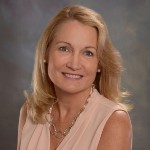TSL Feature Articles
Click on the link below to meet some of the “difference makers” in the secured finance community. This issue of The Secured Lender celebrates those who are having a profound impact on both their communities and their organizations.
Previous TSL Articles
-
 Financial Analysis - Getting Behind The Numbers
Financial Analysis - Getting Behind The Numbers
Financial analysis is a cornerstone for any credit administration function. Each loan officer must know his or her borrowers and thorough financial analysis is the best way to start.
The goal of financial analysis is to link business events to changes in the balance sheet, income statement and cash flow to explain the company’s performance during the period under analysis. Without this linkage you end up with “elevator analysis” (sales are up, AR is up, EBITDA is down, etc.) and no meaningful understanding of the company’s performance.
Where do you start? EBITDA is often a starting point for many people. Why? It is a standard measure of performance in the banking and finance industry. EBITDA is a measure of the profitability generated by a business before interest expense, tax expense and depreciation and amortization expense. While this gives the analyst a place to start and some ability to compare to comparable companies, EBITDA should not be viewed as a proxy for cash generation ability.
-
 The Main Street Lending Program: Can it Work with an Asset-Based Credit Facility?
The Main Street Lending Program: Can it Work with an Asset-Based Credit Facility?
As the Secured Finance Network and its members have examined the Main Street Lending Program, there have been two aspects of the program in particular that have been identified as impacting on the utility of the program for borrowers from asset-based lenders.
Both points, along with some others, have been raised in letters from the Secured Finance Network to the Department of the Treasury and the Federal Reserve. And the Secured Finance Network has followed up with specific questions to Treasury arising from the “Main Street Lending Program Frequently Asked Questions” published on July 31, 2020 by the Federal Reserve Bank of Boston (the “FAQs”) in understanding what is permitted under the Program that could significantly impact how it may be used with an asset-based facility.
-
 Takeaways from SFNet’s Women in Secured Finance Conference
Takeaways from SFNet’s Women in Secured Finance Conference
SFNet’s fourth annual Women in Secured Finance Conference attracted over 300 attendees for two days of inspiring (virtual) sessions featuring senior executives who shared their perspectives on leadership and communications while heading teams virtually and managing changes wrought by the COVID-19 Pandemic.
The consensus: Workers will not be returning to how it was even after a viable vaccine for the COVID-19 virus becomes available. Many of the speakers – women in top management, who are accustomed to being in the office, travelling, and meeting face-to-face with teams and clients—spoke about remote work challenges. They also offered creative ideas to ensure employees feel embraced during this challenging time.
-
 Flexible Workplace Arrangements – Attracting and Retaining Talent in the Current Environment
Flexible Workplace Arrangements – Attracting and Retaining Talent in the Current Environment
The secured finance industry, just like so many others, has demanded that remote work become the “norm.” Will this change better enable the industry to attract and retain top talent?
-
Gibraltar Provides $20MM to Sponsor-Backed Seasonal Business
Gibraltar prides itself on its ability to provide companies and their private equity sponsors with flexible financing and maximum liquidity, based on our ability to understand each business’ special situation. This enabled us recently to provide Texas-based Easy Gardener Products, Inc, a $20 million credit facility to help with a restructuring.
Easy Gardener designs, manufactures, and sells a broad range of consumer lawn and garden products. It sells its products under several well-known patented and trademark brands such as WeedBlock, Jobe's, Emerald Edge, Landmaster, Ross, and Jobe’s Organics. Its customer base includes longstanding relationships over a 20- to 30-year period with a robust network of large national home improvement and mass merchant retailers as well as local hardware stores and independent garden centers and nurseries.
-
6 Considerations when Planning for a COVID19 Business Restart
By Jeff Wright
With so much uncertainty in the economy during this unprecedented health crisis, planning and communication are critical to any company’s survival. Much is being said about preserving cash. And it’s because we all know cash will continue to be king even when businesses restart operations. -
 Interview with Tiffany Dufu, Keynote Speaker at SFNet's Women in Secured Finance Conference
Interview with Tiffany Dufu, Keynote Speaker at SFNet's Women in Secured Finance Conference
Tiffany Dufu will be a Keynote Speaker at SFNet’s virtual Women in Secured Finance conference July 29-30. For more information or to register, please click here.
Tiffany Dufu is founder and CEO of The Cru. Their algorithm matches circles of women who collaborate to meet their personal and professional goals. She’s also the author of the bestselling book Drop the Ball: Achieving More by Doing Less. According to the foreword contributor Gloria Steinem, Drop the Ball is “important, path-breaking, intimate and brave."Named to Fast Company’s League of Extraordinary Women, Tiffany has raised nearly $20 million toward the cause of women and girls. She was a launch team member to Lean In and was Chief Leadership Officer to Levo, one of the fastest growing millennial professional networks. Prior to that, Tiffany served as President of The White House Project, as a Major Gifts Officer at Simmons University, and as Associate Director of Development at Seattle Girls’ School.
-
 Problem Loan? No Problem
Economic cycles and the related recessions are always challenging for lenders to work through. The current economic environment brought on by a pandemic is without precedent and it is hard to predict how businesses and the economy will react in both the short and long term. It is unlikely any lender was prescient enough to have underwritten a pandemic as a risk. We are all now working in unchartered territory as we await the effects of the pandemic to fully unfold. Will there be a second outbreak? Will there be a near-term recovery? How will the recovery look? V-shaped or flat? However, the basic principles for managing a problem loan all apply to the current environment.
Problem Loan? No Problem
Economic cycles and the related recessions are always challenging for lenders to work through. The current economic environment brought on by a pandemic is without precedent and it is hard to predict how businesses and the economy will react in both the short and long term. It is unlikely any lender was prescient enough to have underwritten a pandemic as a risk. We are all now working in unchartered territory as we await the effects of the pandemic to fully unfold. Will there be a second outbreak? Will there be a near-term recovery? How will the recovery look? V-shaped or flat? However, the basic principles for managing a problem loan all apply to the current environment. -
OneWater Marine Inc. Announces a Successful Debt Refinancing
The new credit facility consists of an $80 million term loan, with a $30 million undrawn revolver. It replaces OneWater’s former $110 million facility with Goldman Sachs Specialty Lending, which included a $10 million undrawn revolver. In addition, the new credit facility will maintain more flexible covenants and terms. OneWater has elected to use excess cash to make a significant paydown of the principal amount in conjunction with the refinancing.
Truist Bank acted as the sole administrative agent, collateral agent, swingline lender and issuing bank, while SunTrust Robinson Humphrey, Inc. and Synovus Bank acted as joint lead-arrangers and joint bookrunners.
-
 Interview with Women in Secured Finance Conference Keynote Speaker Libby Gill
Interview with Women in Secured Finance Conference Keynote Speaker Libby Gill
Libby Gill is a leadership speaker, executive coach and author. She is also is the CEO of Libby Gill & Company, an executive coaching and leadership consulting firm, guiding clients and their teams through change, challenge and chaos. Previously, Gill was senior vice president at Universal Studios Television, and vice president at Sony Pictures Television and Turner Broadcasting.
Libby is the author of five books, including the award-winning “You Unstuck, Capture the Mindshare and the Market Share Will Follow, and Traveling Hopefully. Her latest book is “The Hope-Driven Leader: Harness the Power of Positivity at Work.” She is a former columnist for The Dallas Morning News.
In This Section
The Secured Lender

SFNet's Women in Secured Finance Issue
